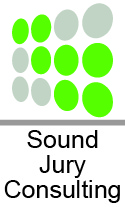Finding Your “North Star” through Early Case Assessments and Research
I never thought when I had Colin Cowherd’s The Herd on as a much needed distraction from all the political news, that there’d be a litigation strategy gem. Cowherd was interviewing Matthew McConaughey about his recent memoir, Greenlight, when they had an interesting exchange about the process McConaughey uses when working with writers/producers on a new project. Here’s a bit of the exchange: Cowherd began, “Years ago I thought about writing a screenplay, so I read a book about it called Save the Cat by Blake Snyder and he says to name the film before you start writing it; because

